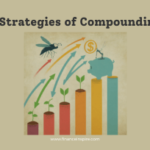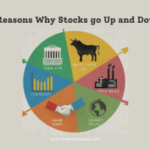Explore 6 alternative investment types beyond stocks & bonds – private equity, hedge funds, real estate, commodities, cryptocurrency, venture capital. Discover unique opportunities, risks & benefits.
6 Different Types of Alternative Investments: A Diversified Approach
In the realm of investment strategies, alternative investments have emerged as a compelling option for investors seeking diversification and potentially higher returns. These unconventional asset classes offer a departure from traditional investments like stocks, bonds, and cash, providing exposure to unique opportunities and risk profiles. In this comprehensive guide, we’ll delve into the different types of alternative investments, such as private equity, hedge funds, real estate, commodities, cryptocurrency, and venture capital, their characteristics, and the potential benefits and risks associated with each.
1. Private Equity
Private equity is a form of alternative investment that involves investing in privately held companies with the intention of fostering their growth and ultimately selling the stake at a profit.
Venture Capital
Venture capital is a subset of private equity that focuses on investing in early-stage, high-growth companies with innovative ideas and products. Venture capitalists provide funding and guidance to these startups in exchange for equity ownership.
Leveraged Buyouts (LBOs)
Leveraged buyouts (LBOs) involve the acquisition of a company, typically a mature and established business, using a significant amount of borrowed money. Private equity firms often employ this strategy to acquire and restructure companies, with the goal of increasing their value and eventually selling them for a profit.
2. Hedge Funds
Hedge funds are actively managed investment vehicles that employ a wide range of strategies, often involving leverage, short-selling, and derivative instruments, to generate returns that are largely uncorrelated with traditional markets.
Long/Short Equity Funds
Long/short equity funds take both long and short positions in stocks, aiming to profit from rising and falling prices. This strategy can potentially generate returns in both bull and bear markets.
Global Macro Funds
Global macro funds seek to capitalize on macroeconomic trends and events by taking positions in various asset classes, including currencies, commodities, and fixed-income securities.
3. Real Estate
Real estate investments offer exposure to the potentially lucrative and tangible world of physical properties.
Direct Real Estate Investments
Direct real estate investments involve the ownership and management of physical properties, such as residential, commercial, or industrial real estate. Investors can participate through direct property purchases or Real Estate Investment Trusts (REITs).
Real Estate Crowdfunding
Real estate crowdfunding platforms allow individuals to pool their resources and invest in a diverse range of real estate projects, offering potentially higher returns and lower barriers to entry compared to traditional real estate investments.
4. Commodities
Commodities are physical goods or raw materials that are traded on global markets, including precious metals, energy products, and agricultural products.
Precious Metals
Investing in precious metals like gold, silver, and platinum can provide a hedge against inflation and economic uncertainty, as these assets often exhibit low correlation with traditional markets.
Energy and Agricultural Commodities
Energy commodities like crude oil and natural gas, as well as agricultural commodities like wheat, corn, and soybeans, offer exposure to supply and demand dynamics and can potentially benefit from global economic growth.
5. Cryptocurrencies and Digital Assets
Cryptocurrencies and digital assets represent a new frontier in alternative investments, offering unique opportunities and challenges.
Bitcoin and Other Cryptocurrencies
Bitcoin, the first and most well-known cryptocurrency, operates on a decentralized blockchain network and has gained increased mainstream acceptance as an alternative asset class.
Non-Fungible Tokens (NFTs)
Non-Fungible Tokens (NFTs) are unique digital assets that represent ownership of various types of digital content, such as artwork, collectibles, and virtual real estate. The NFT market has experienced rapid growth and potential for future value appreciation.
6. Potential Benefits and Risks
Alternative investments offer several potential benefits, including diversification, higher return potential, and exposure to unique opportunities. However, they also carry inherent risks that investors should carefully consider.
Diversification and Potential for Higher Returns
By investing in alternative asset classes, investors can potentially reduce their overall portfolio risk through diversification and access investment opportunities with the potential for higher returns compared to traditional asset classes.
Liquidity and Regulatory Risks
Many alternative investments are less liquid than traditional investments, making it challenging to buy or sell positions quickly. Additionally, some alternative investment vehicles are subject to less stringent regulatory oversight, which can increase risks.
Complexity and Due Diligence
Alternative investments can be complex, with specialized strategies and structures that may be difficult for some investors to fully understand. Conducting thorough due diligence and working with experienced professionals is crucial when considering alternative investments.
Investing in alternative assets can be a powerful tool for diversifying portfolios and potentially enhancing returns. However, it’s essential to carefully evaluate the risks and conduct comprehensive research before allocating capital to these unconventional investment vehicles. Seeking guidance from qualified financial advisors and incorporating alternative investments within a well-constructed and diversified portfolio can help mitigate risks and potentially unlock unique opportunities for long-term growth.









